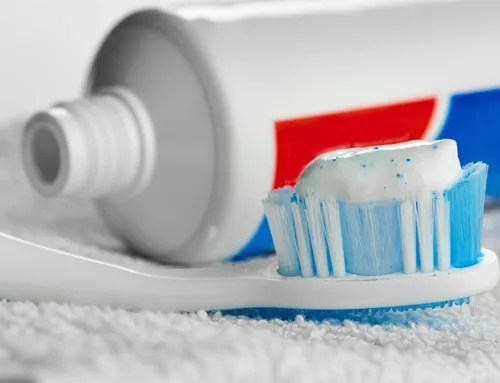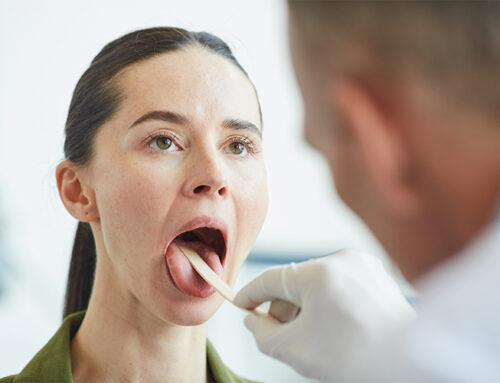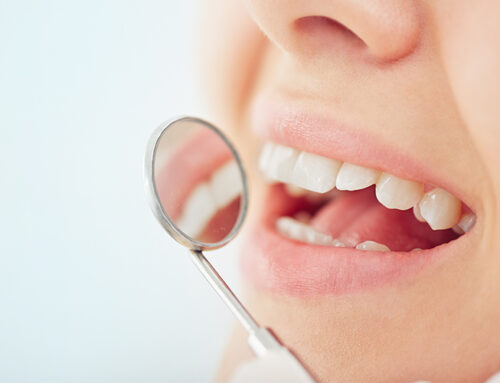Everything You Need to Know About Dentures
November 22, 2021
A denture is a prosthetic dental device that is custom-formed to your mouth. They replace lost, missing, or extracted natural teeth, and are a viable option for those who have serious oral health issues like rotting teeth, severe root damage, or broken/cracked teeth. They are a popular recommendation for individuals who need to get rid of troublesome teeth, need better chewing functionality, or need support for their gums, cheeks, and lips. Plus, they restore smiles, and help individuals regain confidence in themselves.

Is Getting Dentures Right For Me? Understanding Candidacy.
If you’ve been having difficulties with your natural teeth, to the point where you have severe gum disease, are missing a lot of teeth, or are constantly experiencing pain and infections in your teeth, you may be a good candidate for dentures. The most common reasons for recommending dentures are:
- If you have several missing teeth.
- If all your teeth are missing.
- If you have severe periodontal disease (gum disease).
- You have infected, painful, or rotting teeth that must be extracted.
- You have loose or shifting teeth.
- You have difficulty eating hard/chewy foods due to cracked teeth.
- Or, you are self-conscious about smiling.
If I Have Dentures, Do I Still Need to Visit the Dentist?
Those with dentures should still book regular dental visits, as your overall oral health relies on your gums, jawbone, and mouth, just as much as it does your teeth. Here are several reasons why you still need to visit the dentist, regardless of what type of dentures you have.
- Oral Hygiene Maintenance. Even if you have a full set of dentures, your mouth is still susceptible to gum disease. For those with partial dentures, your remaining teeth can still develop cavities from food that gets caught between them and your dentures. Plus, your dentures can build up plaque on them that requires them to be deep cleaned by a dentist.
- Oral Health Issues. Regular trips to your dentist will allow them to stay on top of detecting potential oral health problems, like gum disease or oral cancers. Individuals with poor-fitting dentures are more susceptible to developing oral cancers, not to mention other health problems from open sores in the mouth like infection and inflammation.
- Denture Adjustment. Your dentures are going to need adjusting and maintenance over the course of their lifetime. This is because the tissues in your mouth will shift, change, and possibly shrink as you age, causing your bite to be off, and subsequently your dentures. This can lead to major discomfort, open sores, sleep apnea, TMJ disorders, and even poor nutrition. If your dentures slip a lot, click when you talk, or are generally uncomfortable, it’s time to book a dentist appointment for a relining.
- Prolong Your Dentures Lifespan. Routine visits to your dentist ensures that any signs of damage, plaque build up, or bite problems can be addressed. Your dentist will check to make sure they are in good condition, deep clean them, and adjust them to fit better, while giving you proper care instructions, so that you can maintain their functionality for as long as possible.
How Do Dentists Reline Dentures?
A denture reline resurfaces the underside of your dentures, so that they fit more comfortably on your gums. This is a necessary procedure, as it makes up for the changes in the shape of your mouth, and the bone loss from missing teeth. A denture reline will prevent excess pressure from being put onto your gums, keeping them free from irritation, and sores. There are two kinds of relining procedures available; here is how they are done.
- A Soft Reline. Your dentist will use a liquid polymer to add additional depth, and cushioning to the denture, creating a much more comfortable base. During a soft reline appointment, you will provide feedback to the dentist on how the denture feels, to ensure that you get a secure fit. Who is a soft reline for?
- New denture wearers, who are experiencing rapid bone loss.
- Those who have bone reabsorption occurring.
- Those who have thinner gums.
- Those who have advanced gum recessions.
A soft reline is a quick procedure, as you don’t need to wait for the dentures to come back from a lab, but you will need more frequent relining as the material wears away at a quicker rate.
- A Hard Reline. With a hard reline, your dentist will remove some of the base plastic inside your dentures, and replace it with putty. An impression will be made by placing the denture into your mouth. Once the putty has hardened, it will be replaced by an acrylic that is similar to the composition of your dentures. The only downside to a hard reline is that your dentist may choose to send the impression off to a dental laboratory for development, leaving you without your dentures for a bit.
Having a reline done will resolve issues like gum irritation, sores, and general discomfort. It may help you chew easier, and resolve any lisps, slurs, or speech difficulties that have developed from an ill-fitting denture.
What Are Some Tips for Maintaining Dentures?
Just like your natural teeth, dentures can get food caught between them, and they can accumulate bacteria buildup if they aren’t properly maintained or cleaned. Not only can this make you ill, but it can reduce the lifespan of your dentures.
Here are 10 tips for maintaining them
- Do a deep clean of your dentures at least once a day. To do this, remove them from your mouth and rinse them in warm water, then place them on the towel (this protects them if you accidentally drop them). Then use a soft-bristled toothbrush, to gently remove bacteria, food, and plaque from all surface areas. You may want to use a denture cleanser or mild soap, along with your warm water. If you can, clean them twice a day, as if they were your natural teeth.
- After consuming food or beverages, remove your dentures and rinse them in warm water. You should also rinse your mouth out with water, before reinserting them into your mouth.
- Do not use toothpaste or whitening products on your dentures. Toothpaste is abrasive and can cause scratches, while whitening products will change their coloring.
- At night, don’t wear them to bed. Soak them in cool or warm water instead. You may also use a denture-soaking solution. Never use hot water as this can change their shape. In the morning after, rinse your dentures first before inserting them into your mouth.
- If using denture adhesive, always use the correct amount. Clean away the adhesive at night with denture cleaner, or a mild soap. Use a soft-bristled toothbrush, and a very soft towel if you want to dry them.
- Always handle your dentures with gentle care, removing them over a sink of water or a soft, folded towel to prevent damage if they are dropped.
- Always brush your gums, mouth, cheeks, and tongue before putting in your dentures in the morning.
- Stay hydrated to avoid dry mouth, which may cause gum irritation or decay from bacteria sitting in the mouth.
- If you are a new denture wearer, consider cutting your food up into smaller chunks for the first while to make it easier to chew. Always chew on both sides of your mouth, as this helps you avoid dislodging your dentures.
- Avoid consuming sticky or hard foods, like caramels or nuts, as these can loosen your dentures.
By developing a proper cleaning routine for your dentures, you’ll be able to minimize any complications from them and extend their lifespan. If you notice that your dentures look worn down, if you break them accidentally, or if you have any concerns about them, reach out to your dentist as soon as possible.
If you haven’t been to the dentist in a while or need to schedule an appointment contact us or give us a call at (813) 333-1922.








